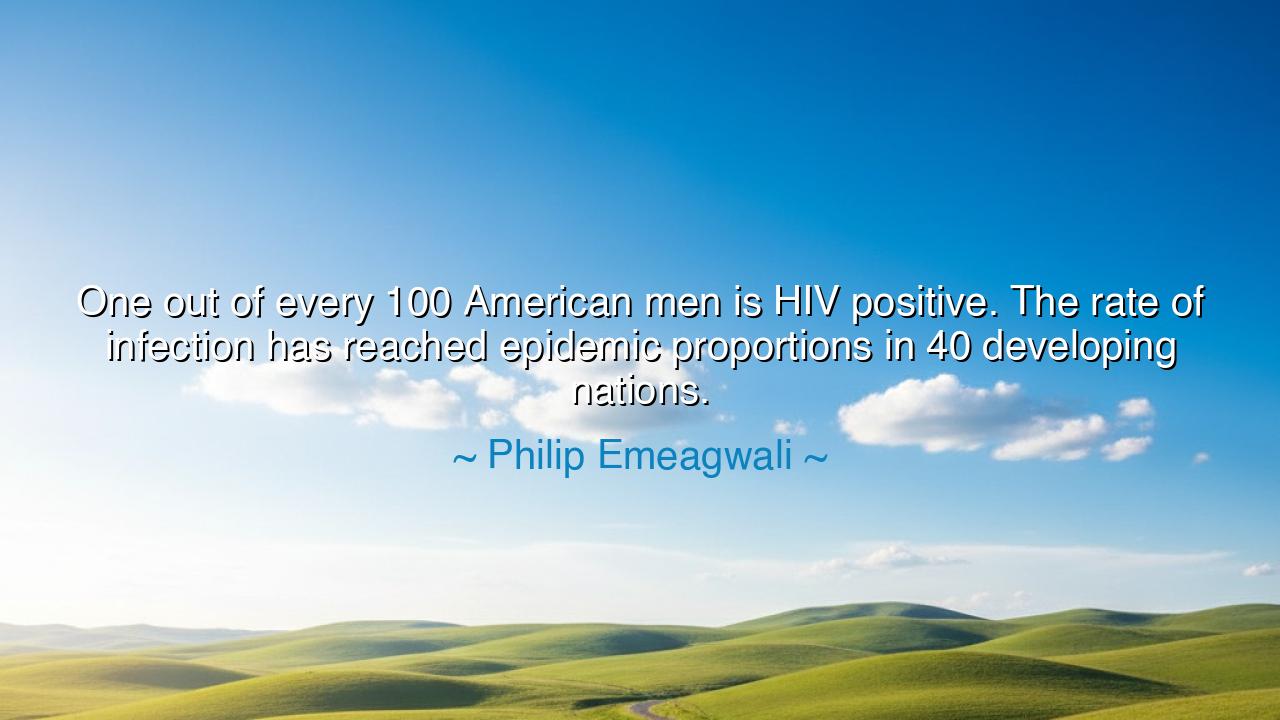
One out of every 100 American men is HIV positive. The rate of
One out of every 100 American men is HIV positive. The rate of infection has reached epidemic proportions in 40 developing nations.






The words of Philip Emeagwali — “One out of every 100 American men is HIV positive. The rate of infection has reached epidemic proportions in 40 developing nations.” — are spoken with the weight of tragedy and urgency. They remind us that disease is not merely a matter of medicine, but of humanity itself, and that when an affliction spreads, it strikes at the dignity, hope, and future of whole peoples. His words are both lament and warning: that silence and neglect in the face of suffering is itself a form of death.
To say that one in a hundred American men carries this burden is to reveal the hidden face of an enemy that walks quietly among communities, yet claims lives daily. To speak of epidemic proportions in developing nations is to remind us that suffering is not equal: poverty magnifies illness, and injustice sharpens its sting. Emeagwali’s voice, like that of a prophet, demands that the world see not only numbers, but the lives behind them — fathers, sons, brothers, and friends, torn away too soon.
History too knows such plagues. In the days of Athens, during the Peloponnesian War, pestilence ravaged the city, killing thousands and shaking faith in the gods. In medieval Europe, the Black Death swept across nations, sparing neither rich nor poor, reminding mankind of its fragility. But in each age, the test was the same: whether fear and despair would prevail, or whether compassion, courage, and knowledge would rise to meet the calamity.
Emeagwali’s words call for more than awareness; they call for solidarity. For no nation, however mighty, can wall itself off from disease. The suffering of the many is the concern of the whole human family. Science, medicine, and compassion must walk hand in hand if humanity is to survive such trials. To turn away, to dismiss, or to stigmatize is to allow the plague to spread unchallenged.
Let the generations remember: epidemics are not only battles of the body, but of the spirit. To confront HIV and all diseases like it is to confront fear, ignorance, and indifference. Philip Emeagwali’s words endure as a cry of both warning and hope: that in naming the scourge and facing its proportions, we may yet rise with the courage to heal, to protect, and to stand together as one human family against the shadow of death.






AAdministratorAdministrator
Welcome, honored guests. Please leave a comment, we will respond soon